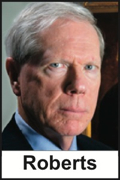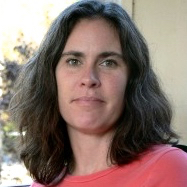Rascals case in brief
In the beginning, in 1989, more than 90 children at the Little Rascals Day Care Center in Edenton, North Carolina, accused a total of 20 adults with 429 instances of sexual abuse over a three-year period. It may have all begun with one parent’s complaint about punishment given her child.
Among the alleged perpetrators: the sheriff and mayor. But prosecutors would charge only Robin Byrum, Darlene Harris, Elizabeth “Betsy” Kelly, Robert “Bob” Kelly, Willard Scott Privott, Shelley Stone and Dawn Wilson – the Edenton 7.
Along with sodomy and beatings, allegations included a baby killed with a handgun, a child being hung upside down from a tree and being set on fire and countless other fantastic incidents involving spaceships, hot air balloons, pirate ships and trained sharks.
By the time prosecutors dropped the last charges in 1997, Little Rascals had become North Carolina’s longest and most costly criminal trial. Prosecutors kept defendants jailed in hopes at least one would turn against their supposed co-conspirators. Remarkably, none did. Another shameful record: Five defendants had to wait longer to face their accusers in court than anyone else in North Carolina history.
Between 1991 and 1997, Ofra Bikel produced three extraordinary episodes on the Little Rascals case for the PBS series “Frontline.” Although “Innocence Lost” did not deter prosecutors, it exposed their tactics and fostered nationwide skepticism and dismay.
With each passing year, the absurdity of the Little Rascals charges has become more obvious. But no admission of error has ever come from prosecutors, police, interviewers or parents. This site is devoted to the issues raised by this case.
On Facebook
Click for earlier Facebook posts archived on this site
Click to go to
Today’s random selection from the Little Rascals Day Care archives….
Click for earlier Facebook posts archived on this site
Click to go to
Today’s random selection from the Little Rascals Day Care archives….
Did prosecutors sell out for name recognition?
 Nov. 12, 2012
Nov. 12, 2012
“It is not conceivable that any of the prosecutors (in cases such as Little Rascals) believed a word of the charges responsible for ruining the lives of so many people. The cases were brought for one reason alone: to gain name recognition for the prosecutors.”
– From “The Tyranny of Good Intentions: How Prosecutors and Bureaucrats Are Trampling the Constitution in the Name of Justice” by Paul Craig Roberts and Lawrence M. Stratton (2008)
Could prosecutors really have sold their souls (not to mention their public trust) for mere “name recognition”? Or did their lust for guilty verdicts blind them to the obvious?
Most days, the latter seems more likely to me. Or perhaps a hybrid….
Indisputably, however, career benefits did attach to trumpeting from the courthouse steps that you’ve sent away Bob Kelly for 12 consecutive life sentences.
‘No abuse until the interviews began….’
Feb. 11, 2013
“After reading a number of these interviews (of children) in the Wee Care (Kelly Michaels) case, it is difficult to believe that adults charged with the care and protection of young children would be allowed to use the vocabulary that they used in these interviews, that they would be allowed to interact with the children in such sexually explicit ways, or that they would be allowed to bully and frighten their child witnesses in such a shocking manner. No amount of evidence that sexual abuse had actually occurred could ever justify the use of these techniques especially with three- and four-year-old children.
“Above and beyond the great stress, intimidation, and embarrassment that many of the children so obviously suffered during the interviews, we are deeply concerned about the long-lasting harmful effects of persuading children that they have been horribly sexually and physically abused, when in fact there may have been no abuse until the interviews began….”
– From an amicus curiae brief to the Appellate Court of New Jersey from Stephen Ceci and Maggie Bruck on behalf of the 46-member Committee of Concerned Social Scientists (1994)
The chilling body count of ‘personality-driven’ prosecutors

kristincollinswriting.com
Kristin Collins
July 11, 2016
“This week Harvard Law School’s Fair Punishment Project issued a report detailing the legacies of five of the nation’s deadliest prosecutors, and (Joe Freeman) Britt was among them. The report highlights what it calls ‘personality-driven capital sentencing,’ which leads overzealous prosecutors with a flair for courtroom theatrics and a desire for personal fame to pursue death sentences at disproportionate rates….
“This personality-driven system means that a death sentence often says less about the severity of the defendant’s crime, than it does about the prosecutor’s enthusiasm and courtroom skills. Personality-driven prosecutions can also lead to wrongful convictions, when prosecutors making winning cases a higher priority than seeking justice….
“Britt often cut corners to win. Appellate courts found that Britt committed misconduct in 14 of his capital cases, the new report shows. His offenses included hiding evidence that might have proven defendants innocent and making inflammatory and improper statements to jurors….
“When they were exonerated by incontrovertible DNA evidence, Britt did not even have the heart to admit his mistake. Instead, he continued to loudly proclaim their guilt….”
– From “NC ‘deadliest prosecutor’ valued winning over justice, new report shows” by Kristin Collins at NC Coalition for Alternatives to the Death Penalty (June 30)
I shudder to speculate what might have happened in Edenton had North Carolina sanctioned capital punishment for child sex abuse. The Little Rascals prosecutors, most strikingly Nancy Lamb, bore many of the “personality-driven” characteristics seen in a Joe Freeman Britt:
- “A flair for courtroom theatrics and a desire for personal fame”? Check.
- “Hiding evidence that might have proven defendants innocent”? Check.
- “Inflammatory and improper statements to jurors”? Check.
- “Continued to loudly proclaim their guilt”? Check…..
![]()
The unbearable emptiness of ‘n=’
May 24, 2013
“The research described is a study of a clinical sample of 72 women who allegedly sexually abused 332 children. The Sample is examined from a variety of perspectives, including whether the abuse was intrafamilial (n = 33), extrafamilial (n = 18), or both (n = 21); and whether the abuse involved multiple intrafamilial offenders (n = 33), a solo intrafamilial offender (n = 17), multiple extrafamilial offenders (n = 16), or solo extrafamilial offenders (n = 6). Social situational factors and individual deficits – mental illness (n = 23), mental retardation (n = 16), substance abuse (n = 37), and other maltreatment of their children (n = 61) that might lead women to sexually abuse children – are examined. Case outcomes, including the number of confessions (n = 49), criminal prosecution (n = 3), and protection of victims (n = 44) are described.”
– From “A Clinical Sample of Women Who Have Sexually Abused Children” (abstract) by Kathleen Coulborn Faller in the Journal of Child Sexual Abuse (Vol. 4, Issue 3, 1996)
Yes, I am endlessly appalled by the ornateness of the statistical sham woven by the likes of Kathleen Faller, Susan J. Kelley and David Finkelhor.
What ever could Faller have been thinking as she wrote the words “72 women who allegedly sexually abused 332 children”? Surely she knew the historical absurdity of those numbers.
Did she simply choose to be oblivious? Or was she swallowed up by something more powerful than rationality?











0 CommentsComment on Facebook